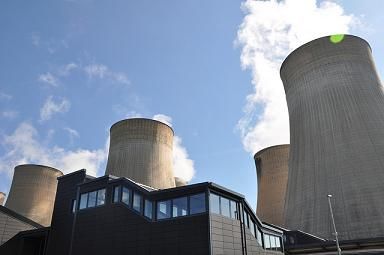Electricity market reforms to hit the UK
A transformation of the UK’s energy market is planned, judging by the draft bill for electricity market reforms, which was unveiled today.


A transformation of the UK’s energy market is planned, judging by the draft bill for electricity market reforms, which was unveiled today.
The reforms aim to attract £110 billion of investment to increase low-carbon power generation. The reforms also seek to introduce an Emissions Performance Standard, which aims to prevent the construction of any new coal plants in the UK.
This move, the government claim, offers many benefits, including businesses and households avoiding seeing the rise in energy prices that would occur if no reforms were implemented.
With demand for electricity predicted to continue to raise, and supply set to become scarcer as many UK power plants go out of use, the government is looking at cleaner ways to safeguard against the potential blackouts that could affect millions of homes.
Another major factor for the government to consider is the need to prevent the UK having to become more dependant on importing oil and gas from overseas, due to the geopolitical risks it would pose.
“Leaving the electricity market as it is would not be in the national interest. If we don’t secure investment in our energy infrastructure, we could see the lights going out, consumers hit by spiralling energy prices and dangerous climate change,” said UK Secretary of State, Edward Davey.
“These reforms will ensure we can keep the lights on, bills down and the air clean. The reforms will also be better for the economy, leaving us less vulnerable to rising global energy prices and supporting as many as 250,000 jobs in the energy sector.”
With or without reform, electricity bills are set to increase, largely due to rising fossil fuel prices. However, these electricity market reforms, the government hopes, will help to reduce the amount that bills will increase by. Average bills for businesses and energy intensive industries will also be lower than without reform, claim the UK Department of Energy and Climate Change (DECC).
The urgency of such reforms is that the UK is currently seeing many nuclear power stations going offline and likewise coal power stations. Around a fifth of existing power generation is expected to go offline in the next decade. As said, the national demand for electricity is rising, particularly as the transport sector in the country becomes more electricity dependant.
To meet such energy demands whilst securing the future of green energy infrastructure, the bill proposes the introduction of long-term contracts that pay a consistent rate of return for energy over the lifetime of new low-carbon generators.
Amidst fears that such reforms will make it easier to commission nuclear power plants, Davey said: “There will be no blank cheque for nuclear- unless they are price competitive, nuclear projects will not go ahead.”
This is a particularly significant point, as state subsidies for nuclear plants are illegal in the EU.
Criticism of the draft bill has already come in. Chief executive of Npower, Volker Beckers expressed concern over the proposed capacity mechanism; by which payments will be made to power stations to guarantee the capacity to meet demand.
“We believe the introduction of a capacity mechanism will make the British energy sector highly inefficient, costing consumers many billions in unnecessary cost,” Volker said.
Environmental groups have also been quick to criticise the plans, claiming they do not target the UK’s reliance on gas. Environmentalists also believe that the current problems associated with increasing energy supply from nuclear sources will leave the UK reliant on fossil fuels.
“It’s obvious that plans for new nuclear power stations have crumbled,” said John Sauven, executive director of Greenpeace UK.
“The government now has to drop its misguided affair with this hugely expensive pipe dream. Energy Secretary Ed Davey should ramp up the efficiency of our energy system and invest in home-grown renewable energy to boost the economy and reduce consumers’ exposure to rocketing gas prices.”
This current draft bill will now go through scrutiny in parliament before emerging as a bill this autumn. Yet many feel the UK also needs more new legislation to provide a more realistic chance of hitting climate change targets.
Image: A power plant in the UK. Many will be going offline in the next decade. | flickr Ben Sutherland





